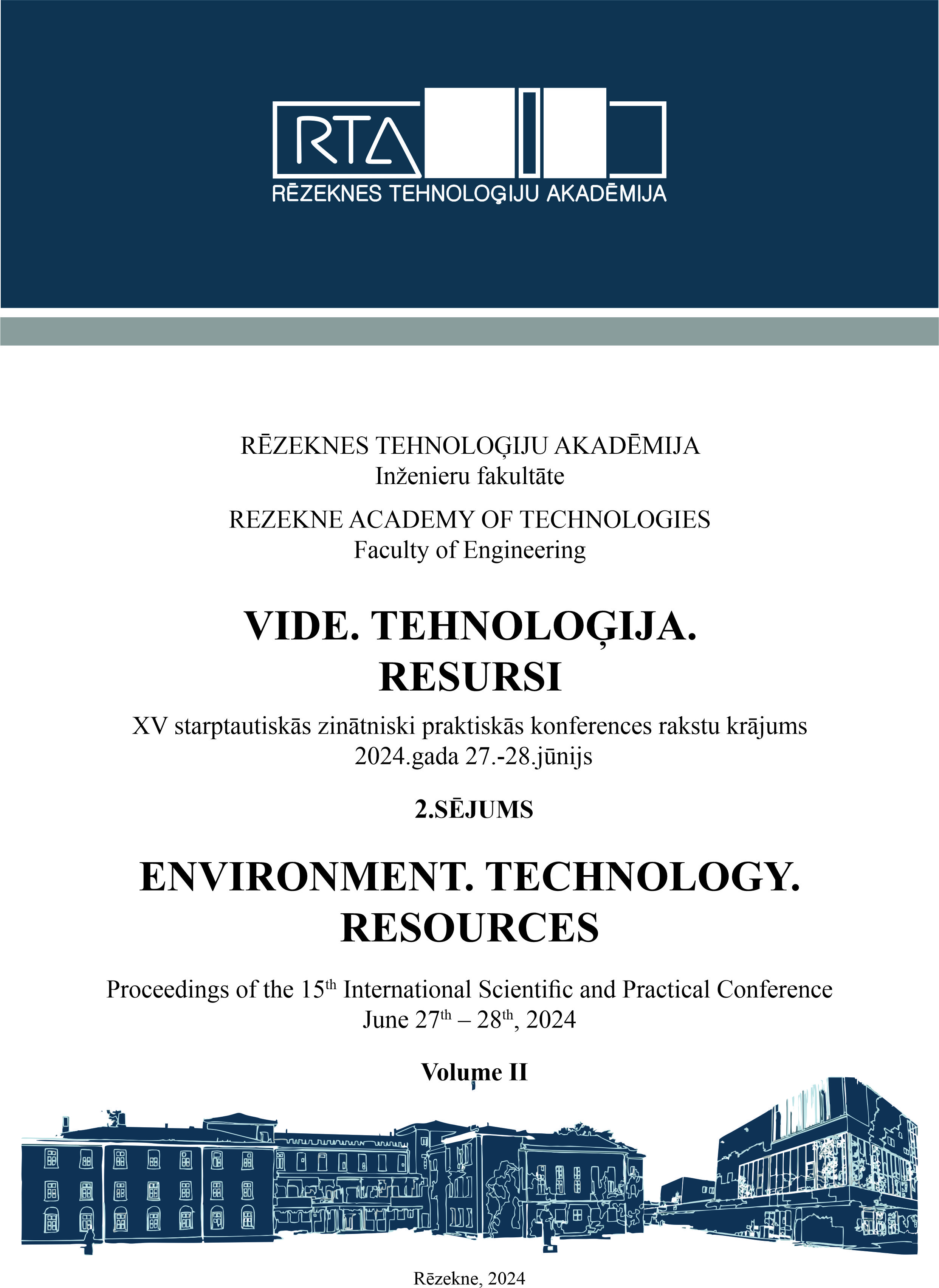THE IMPACT OF ONLINE SOCIAL COMMUNICATION ON THE TRAINING OF SOCIAL WORKERS AND EDUCATORS (UKRAINIAN UNIVERSITIES)
DOI:
https://doi.org/10.17770/etr2024vol2.8018Keywords:
higher education, social communication, social networks, teacher training, training of social workersAbstract
With the growing need to revise approaches to the educational process, educational institutions are increasingly turning to the digital opportunities and needs of the modern society. By closely monitoring the trends in the use of ICTs, engaging in various pilot projects for Ukraine to ensure digital literacy, develop digital competence, and use of Web 2.0 and VR social media, educational institutions are increasing their presence in the digital space of the Internet.
From our point of view, this is a good basis for the declared changes in the educational paradigm at all levels of the educational process, including the training of specialists who will ensure the social, economic and cultural growth of the nation in the future. That is why it was important for us to study the theoretical database of scientific, research and pedagogical literature on the use of social media for education; compare the challenges mentioned in global trends in the use of social media and in Ukrainian practice; compare the presence and interaction of universities in social media with their value in the market of professional training of specialists, in particular, social and pedagogical profile.
Based on the analysis of the above components, we have drawn conclusions about the challenges facing the Ukrainian higher education system, their root causes, and presented a number of tips and solutions that will allow universities to achieve not only a presence in the network, but also to be competitive both in the national environment and in the international arena.
References
P. Diamandis, S. Koler. Maibutnie blyzhche nizh zdaietsia. Yak tekhnolohii zminiuiut biznes, promyslovist i nashe zhyttia / per. z anhl. D. Kozhedub. Kyiv: Laboratoriia, 2021. 320.
Konsolidovanyi reitynh vyshiv Ukrainy 2023 roku. Vyshcha osvita v Ukraini. [Online]. Available: https://osvita.ua/vnz/rating/51741/. [Accessed: Jan. 18, 2024].
Naikrashchi pedahohichni zaklady osvity Ukrainy. Vyshcha osvita v Ukraini. [Online]. Available: https://osvita.ua/vnz/rating/42227/. [Accessed: Jan. 18, 2024].
J.Abbas, J. Aman, M. Nurunnabi, S. Bano. The impact of social media on learning behavior for sustainable education: Evidence of students from selected universities in Pakistan. Sustainability, 2019. 11(6). р. 1683.
C. Redecker, Y. Punie. Learning 2.0 Promoting Innovation in formal Education and Training in Europe. ECTEL‘ 10 Proceedings of the 5th European conference on Technology enhanced learning conference on Sustaining TEL: from innovation to learning and practice. 2010. pp. 308-325.
R. Gil-Fernández, D. Calderón. El uso de las redes sociales en educación: una revisión sistemática de la literatura científica. Digital Education Review, 2021, num. 40, p. 82-109.
A. V. E. D. van Twist, & S. Newcombe. Strauss-Howe generational theory. 2021. [Online]. Available: https://www. cdamm. org/articles/strauss-howe. [Accessed: Feb. 13, 2024].
I. M. Chyrak. Ekonomika sotsialnykh media: navchalnyi posibnyk. ZUNU, 2023. 300.
Vstup.OSVITA.UA. Dani otrymani z YeDEBO 01.12.2023. [Online]. Available: https://vstup.osvita.ua/. [Accessed: Feb. 13, 2024].
Downloads
Published
Issue
Section
License
Copyright (c) 2024 Maryna Davydiuk, Oksana Fushteі, Anna Khilya, Irina Sarancha

This work is licensed under a Creative Commons Attribution 4.0 International License.



